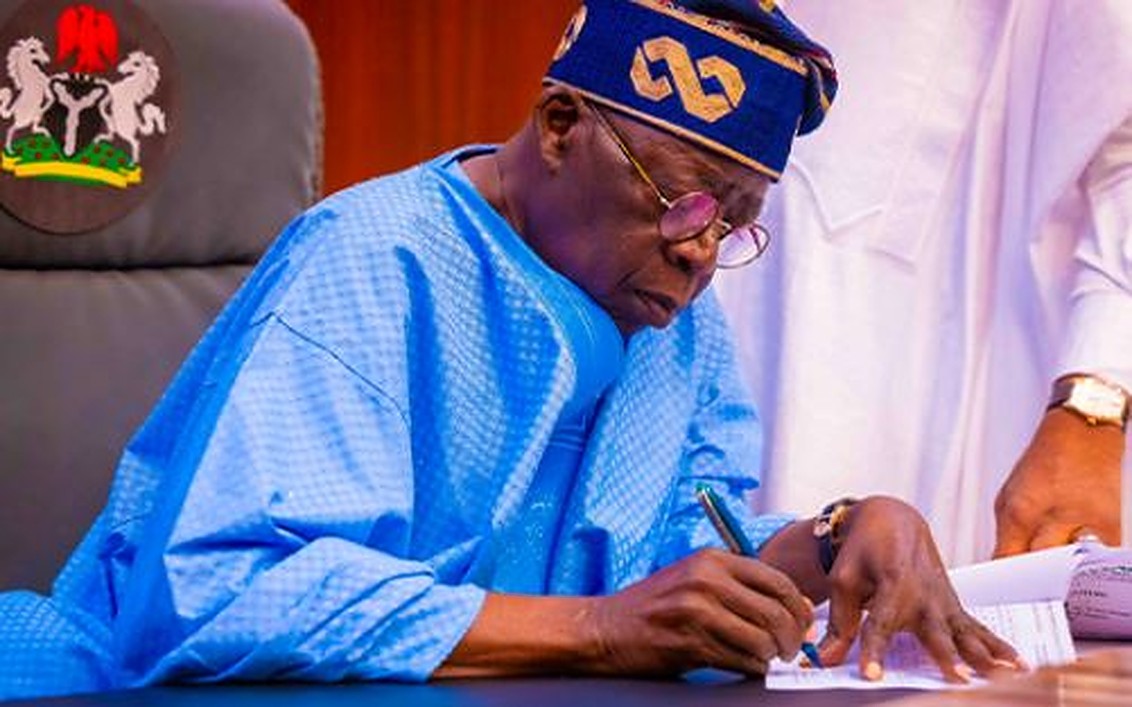
President Bola Tinubu has sought Senate approval to borrow an additional $7.8 billion and €100 million as part of his 2022-2024 borrowing plan. This move is expected to raise Nigeria’s foreign debt to around $51 billion, further exacerbating concerns among financial analysts. Some experts argue that the borrowing is more of a bridging loan to address the country’s balance of payments crisis rather than being aligned with the official reasons provided.
As of June 2023, Nigeria’s foreign debt stood at $43.2 billion, while domestic debt reached N54.1 trillion, resulting in a total public debt of N113.4 trillion. With the proposed borrowing and the depreciation of the naira, the total public debt is projected to reach N130 trillion.
In a letter addressed to the Senate, President Tinubu emphasized that the borrowing plan had been approved by the previous administration in May 2023. The projects covered by this plan span various sectors, including infrastructure, agriculture, health, education, water supply, security, employment, and financial management reforms. The total value of the projects is $7,864,508,559 and €100 million euros.
President Tinubu also mentioned that the removal of fuel subsidies and its economic impact led the African Development Bank (AfDB) and the World Bank Group (WBG) to express interest in assisting Nigeria with $1 billion and $2 billion, respectively, in addition to the approved external borrowing plan.
The borrowed funds are expected to support critical infrastructure projects such as power, railway, and healthcare, among others. President Tinubu highlighted that these projects would be implemented across all 36 states of the federation and the federal capital territory to stimulate economic development, create employment opportunities, reduce poverty, and enhance food security.
Meanwhile, the World Bank Country Director for Nigeria, Shubham Chaudhuri, announced that the bank has committed over $11 billion in the past three years to Nigeria’s federal and sub-national governments. He expressed the World Bank’s commitment to supporting President Tinubu’s efforts to improve the country’s economic situation and reduce poverty.
The British High Commissioner, Richard Montgomery, praised Nigeria’s leadership in the Economic Community of West African States (ECOWAS) and its contributions to democracy and international engagement. The United Kingdom reaffirmed its partnership with Nigeria across various sectors, including defense, security, trade, investment, healthcare, education, job creation, and government effectiveness.
Financial experts have expressed concerns about the increasing debt levels in Nigeria. Some believe that the new borrowing is primarily aimed at addressing the country’s current balance of payments crisis and maintaining access to external credit lines. They emphasize the need for negotiations with creditors to reschedule outstanding debts to provide long-term relief to the economy.
While some experts acknowledge the necessity of additional borrowing to improve dollar liquidity and address economic challenges, others stress the importance of exploring non-debt financing sources to reduce the nation’s reliance on borrowing.
Mallam Garba Kurfi, Managing Director/CEO of APT Securities and Fund, sees the planned borrowing as a way to stabilize the exchange rate market and prevent further devaluation of the Naira. He also suggests increasing crude oil exports and finding alternative sources of foreign exchange, such as remittances from the diaspora.
In contrast, Johnny Ubaka, Secretary of the Association of Concerned Freight Forwarders and Transporters (ACFF&T), recommends that the government focus on increasing export volume and production capacity to boost GDP instead of borrowing. He highlights the government’s improved revenue through double taxation and increased import duties.
The debate over Nigeria’s borrowing continues as the government seeks ways to address economic challenges and stabilize the country’s financial situation.




Comments are closed.